As climbing gyms start to reopen and climbing outside begins to start again – many are suggesting the use of liquid chalk. Liquid chalk uses a form of alcohol that – in theory – could help disinfect your hands. We’ll check the theory and the facts behind it.
We want to be really clear up front here that there are no studies about liquid climbing chalk use as a disinfectant in general or specifically for SARS-CoV-2 / COVID-19. It can’t be said for sure that liquid chalk is antibacterial. Read the full article and not the headlines.
Many gyms are advising the use of liquid chalk instead of standard powdered chalk. It seems like there is some merit in it being somewhat effective against spreading germs and possibly the virus. So, is liquid chalk antibacterial? We’ll take a look with full sources on everything cited at the bottom of the article. Don’t just trust us or a facebook headline.
Just Want Liquid Chalk?
– Friction Labs Secret Stuff
– Black Diamond Liquid Gold
– Metolius Liquid Super Chalk
What Is Liquid Chalk?
Liquid chalk is simply chalk mixed with a liquid that evaporates on exposure to air. Mostly this liquid is alcohol in different percentages. It works well because you squeeze the liquid on your hands and get a really good coating as it gets into the skin’s crevices. Then as the alcohol evaporates it leaves a very even coating of chalk.
Many find that they don’t have to reapply chalk as much after the first coating, and some use it as a base layer with loose chalk after. Other newer chalks like upsalite climbing chalk also claim to need less reapplication too.
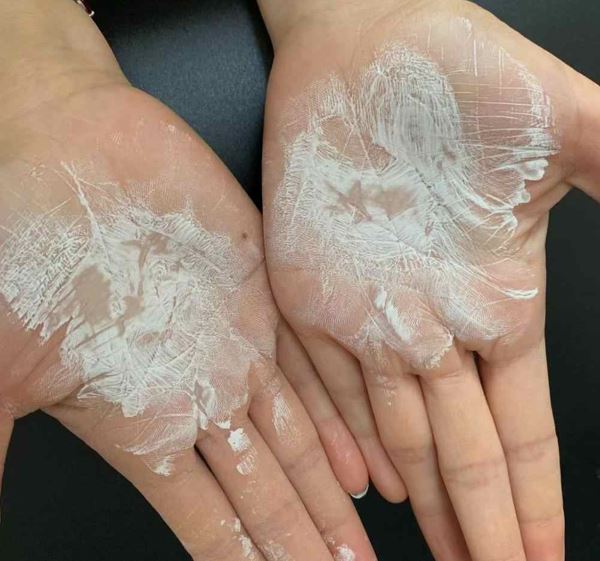
Is Alcohol Antibacterial?
Yes, in the right percentages. Hand sanitizer gel uses either isopropanol, ethanol, or n-propanol separately or mixed for their anti-bacterial properties. The generally accepted percentages for the best efficiency is ethanol at 60% to 85%, isopropanol at 60% to 80%, and n-propanol at 60% to 80%. The rest of the percentage is just water.
Higher percentage isn’t necessarily better. Too high and it evaporates too fast for effective cleaning and might not get to the inside of the cell to kill the germ.
Alcohol hand sanitizer gels work best in situations where hands are not soiled or covered in organic matter. Basically it doesn’t work if your hands are dirty already. It’s use is for killing things you can’t see with the naked eye.
Does Alcohol Hand Sanitizer Work Against SARS-CoV-2?
Yes, in the right percentages. SARS-CoV-2 is the virus that causes the disease COVID-19. The WHO released two recommended formulas for alcohol hand gel that seem to be the most effective against SARS-CoV-2 after a very recent study. The study also confirmed that ethanol and isopropanol alcohol based gel are also effective. The CDC advise using alcohol hand sanitizer 60%+ ethanol or 70%+ isopropanol is effective. The study was also done assuming 30 seconds of rubbing in the gel.
So Liquid Climbing Chalk Is Antibacterial, Right?
The main use of the alcohol in liquid climbing chalk is for the drying effect – not as a disinfectant. There have been no studies done on liquid chalk as a disinfectant so we literally do not know. However, many people claim that liquid chalk is antibacterial and works on viruses if it has the right percentage alcohol in it. This could be case and it’s definitely not a leap to say a product with alcohol in it might have some antibacterial properties. If you are going to try it we’d suggest to use ones with the right alcohol percentages.
…But
It’s not proven so it shouldn’t be treated as fact. Plus there are some reasons why it might not work at all.
- We mentioned earlier that some water needs to present in the alcohol to help cross the cell barrier. The job of the chalk is to absorb any moisture and this could well mean the alcohol doesn’t get to do it’s job on germs or virus cells properly.
- Alcohol as a sanitizer also isn’t as effective on soiled hands. Hands covered in chalk, dirt, and other peoples skin – plus whatever other nasty mess that gets on holds – count as soiled.
Update – Study On 80% Liquid Chalk
A study was recently done using the Friction Labs Secret Stuff which has a new formulation of 80% ethanol alcohol. It was only small study, and only done by apply the chalk to a sample of the virus. The study was small but the results were positive. Again, studies need to be verified, and repeated before drawing absolute conclusions.
The important thing to note is that the test was not done by applying to virus to the dried chalk like if someone were to breathe particles on to your hands, or if there were virus particles on a hold. In theory chalking up with liquid chalk over particles of the virus may kill some of the virus. However, that’s only one way of killing it and there are many other ways the virus can come into contact with you in a gym.
More Chalk Talk
– Find out the Best Liquid Chalk For Climbing
– What is Upsalite Climbing Chalk
Could Liquid Chalk Be Safer Than Using Loose Chalk?
So without is being proven as antibacterial – there are a few good reasons why liquid chalk could be safer.
Air Particles Concern
The spread of SARS-CoV-2 seems to be primarily spread though droplets from the human respiratory system i.e. coughs and sneezes. There are now two studies on the detection of SARS-CoV-2 on aerosols – fine particles suspended in the air – that show the virus could be spread on these particles. Chalk dust is actually too large on the nano scale to be classed as an aerosol.
When you chalk up you’re mixing anything on your hands with anything that’s in your chalk bag. If the virus is found to be spread in a similar way to the research on aerosols then mixing chalk dust into the air could be a bad thing. Using liquid chalk means a lot less chalk dust in the air on application.
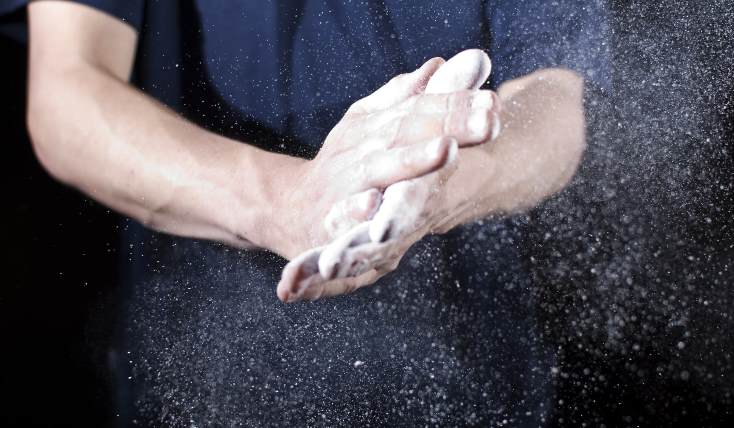
Is Loose Climbing Chalk Healthy Anyway?
A fine mist of chalk dust can be found in the air at most climbing gyms. Some research has been done on the impact of MgCO3 in the air but there is nothing concrete to say it is bad. It is thought that the particle size is too big to be of major concern. The presence of other elements like silica particles can be bad – and some climbing chalk does contain this.
It hasn’t been studied well enough yet but high levels of climbing dust could possibly be a health hazard. Poor lung function is a heavy contributor to the worst symptoms of COVID-19. Air quality is also linked to a higher death rate from COVID-19. Reducing the level of dust in the air could possibly reduce these factors.
The Reality Of Climbing And COVID
Climbing gyms are often close contact places. It’s very hard to clean plastic holds effectively at the best times and basically impossible for them to be sanitized in a way that’s meaningful enough to stop the spread of COVID-19. The same goes for outdoors on real rock. The virus has been shown to be present on various surfaces lasting from hours to days. Staying 2 metres away from a belay partner might be possible but you’ll still be touching at least some of the same gear. Bouldering might be a different story.
– Hey! Remember to be nice
Much of the science around COVID-19 right now isn’t settled or researched just because of the time it takes to do it properly.
It could well be found that the alcohol in liquid chalk has some antibacterial properties. It might not help at all. However, it’s totally safe to try and doesn’t really affect your climbing.
Be aware that gyms, national climbing organizations, and individuals are all trying their best at this time. Getting angry over good intentions would be a shame.
Out best advice is this: Don’t take advice from random articles you read on the internet – including this one. Listen to scientists.
We’ve put all of our sources below so you can do your own research. We also recommend you follow the WHO’s guidelines and your local or national climbing association. Local gyms have their own rules which should be followed. If you can’t follow the guidelines safely – don’t go climbing.
WHO Advice
- Regularly and thoroughly clean your hands with an alcohol-based hand rub or wash them with soap and water
- Maintain at least 1 metre (3 feet) distance between yourself and others
- Avoid going to crowded places
- Avoid touching eyes, nose and mouth
- Stay home and self-isolate even with minor symptoms
- If you have a fever, cough and difficulty breathing, seek medical attention
- Keep up to date on the latest information from trusted sources
Climbing Organization Advice
American Alpine Club – Climbing in the COVID Era Guidelines
International Climbing and Mountaineering Federation UIAA
British Mountaineering Council Advice
To be very clear – the primary suggested method for killing SARS-CoV-2 is washing your hands with soap and water for at least 20 seconds.
Is Liquid Chalk Antibacterial – Sources
https://www.ncbi.nlm.nih.gov/books/NBK513254/ Alcohol sanitizer study, percentages, efficacy
https://www.who.int/gpsc/5may/Guide_to_Local_Production.pdf – WHO recommended percentages and preparation
https://wwwnc.cdc.gov/eid/article/26/7/20-0915_article Study on WHO recommended alcohol hand sanitizer percentages done by the CDC
https://www.cdc.gov/coronavirus/2019-ncov/prevent-getting-sick/prevention.html CDC advice
https://www.isiaq.org/docs/paper/HP0892.pdf Study on chalk dust in climbing gyms
https://pubmed.ncbi.nlm.nih.gov/22767051/?i=1&from=/22767051/related Reducing Dust Exposure in Indoor Climbing Gyms
https://pubmed.ncbi.nlm.nih.gov/18449402/ Dust Exposure in Indoor Climbing Halls
https://pubchem.ncbi.nlm.nih.gov/compound/Magnesium-carbonate#section=Safety-and-Hazards CDC Magnesium Carbonate safety
https://www.europeanlung.org/covid-19/covid-19-information-and-resources/covid-19-info Lung function and COVID-19
https://www.medrxiv.org/content/10.1101/2020.04.05.20054502v2 Air quality and COVID-19
https://www.thelancet.com/journals/lanmic/article/PIIS2666-5247(20)30003-3/fulltext Surfaces study
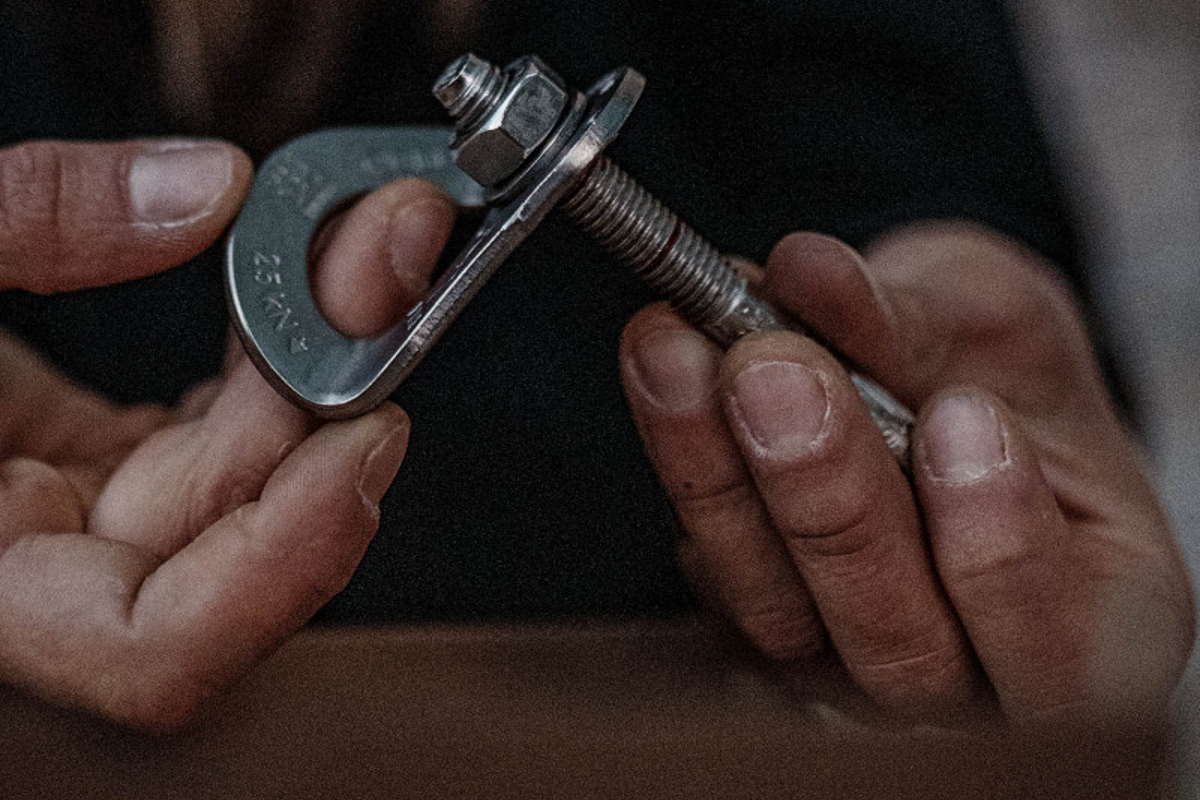
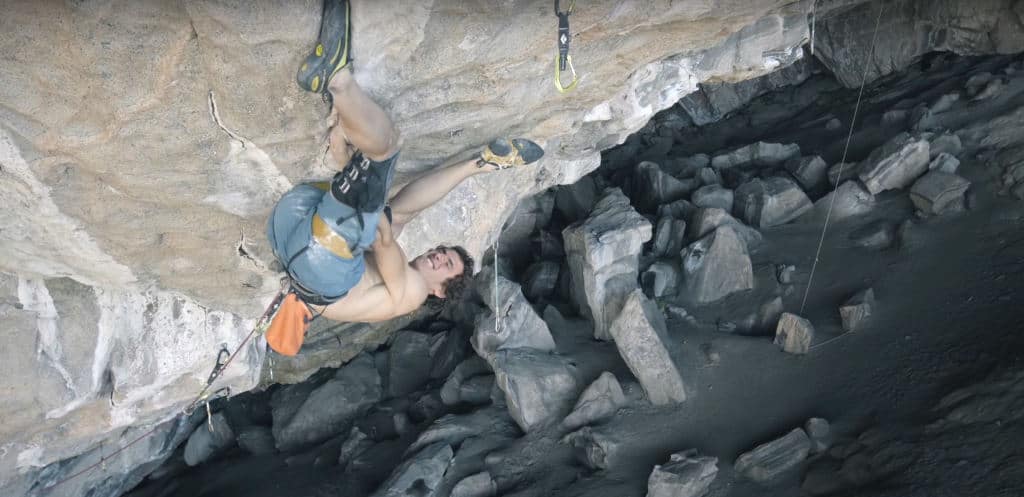

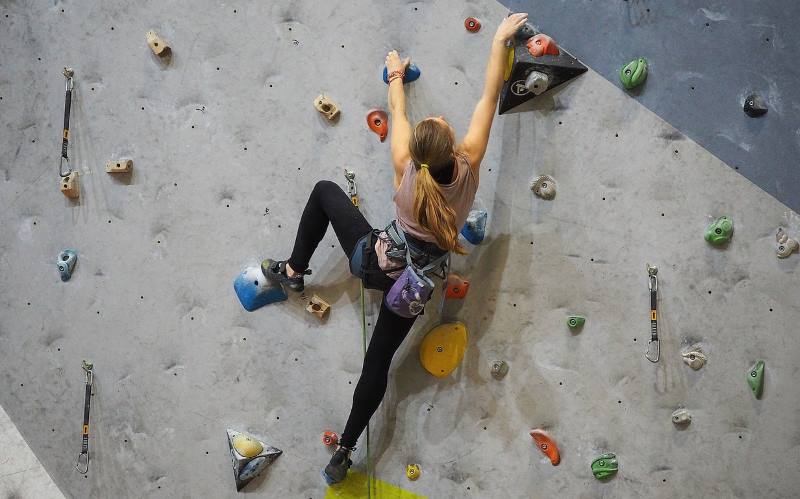

3 thoughts on “Is Liquid Chalk Antibacterial? The Claims Tested”
Comments are closed.